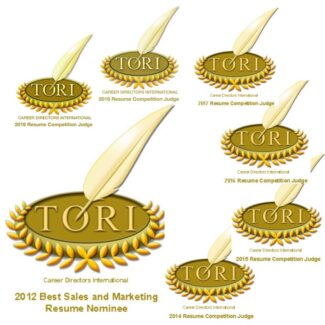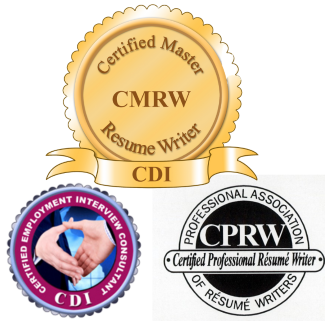Ever wonder what employers are looking for as they browse through hundreds of resumes? You guessed right. Certifications!
And the famous Robert Blanchard knows it too. In his words, “The person with the certification is the one that is going to get hired,” Robert knew from experience that professional certifications are the golden nuggets employers look for when recruiting.
And we have the numbers to prove it. A Microsoft Professional Certified study found that 91% of IT managers consider IT certifications as reliable predictors of successful employees.
Your resume is the mirror of your past life. It provides the employer with verifiable evidence of your skills and competencies. It’s thus imperative to make it stand out by not just adding any professional certification you may have but also know where to list them. That said, here are five benefits of adding professional certifications on your resume:
1. Gives You an Edge Over the Competition
Your resume will face fierce competition. Although it varies with the industry, company, and role, a typical corporate job opening receives an average of 250 resumes. So how do you stand out from the competition?
One way is to have credible and respected professional certifications on your resume—the more the better. For example, if you’re in the accounting field, an accounting certification such as the CPA will earn you all the bonus points. Why? The Certified Public Accountant (CPA) designation is renowned and greatly upheld in the accounting industry. It’s considered the gold standard and the mother of all accountancy courses owing to its rigorous nature and ability to comprehensively cover all aspects of accounting.
2. Shows a Specific Set of Competencies
There is no better way to prove you have a specific set of competencies than to include the relevant certification on your resume.
For example, if you claim you’re good in investment analysis, verbal proclamations will not cut it. However, possessing a Chartered Financial Analyst (CFA) or Chartered Alternative Investment Analyst (CAIA) certificate will prove you’re an expert in securities. In such cases, portfolio managers might give you precedence over another candidate who may have higher academic credentials but no professional certification.
3. Paints Your Character
Pursuing a professional course doesn’t just impart you new skills; it creates a great first impression in the eyes of the interviewer. Adding professional courses, especially the tough ones like the Cisco Certified Internetwork Expert (CCIE) on your resume shows personal drive, discipline, hunger for knowledge, and willingness to learn—all important traits to employers.
While gauging a candidate’s character merely from a credentials perspective can be tricky, it does give employers a gist of a candidate’s abilities and dedication. For instance, completing and passing a tough professional exam shows you’re willing to go the extra mile to get the job done.
4. Increases the Quality of Your Interview
Interviewers will use your resume to determine the value you can bring to the company, so make it shine by highlighting every little detail. For instance, it’s not every day that interviewers see candidates adding certifications like Google Digital Marketing Courses on their resume. Having such certification alongside a bachelor’s degree will show how dedicated you are to marketing.
Adding a related professional course helps to prepare you for the interview while giving you insights into what the interview will look like. You can expect to be asked questions like:
- What motivated you to pursue this professional qualification?
- What knowledge have you gained from this course?
- What can you do now that you couldn’t do before you enrolled for the course?
In line with that, having a professional certification can dictate the direction of the interview. And answering these questions articulately will no doubt secure you the job.
5. Improves the Layout of Your Resume
Adding a section for professional certifications changes the layout of your resume, giving it a more polished look. A resume that is not merely a listing of past positions, but includes different sections for certification, skills, and accolades makes the employer want to know more about you, hence pushing you to the next stage of the recruitment process.
The Bottom Line
Different employers look for different things when searching for recruits. One thing they all have in common is that they all know that, ‘certified candidates make great employees.’ Consider adding a professional certification on your resume to secure your dream job.


